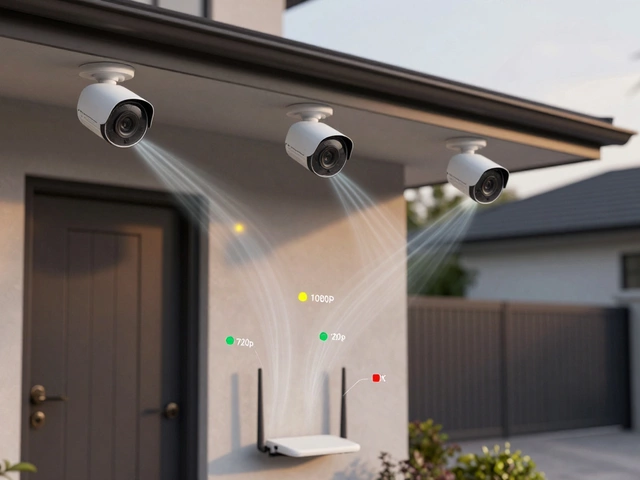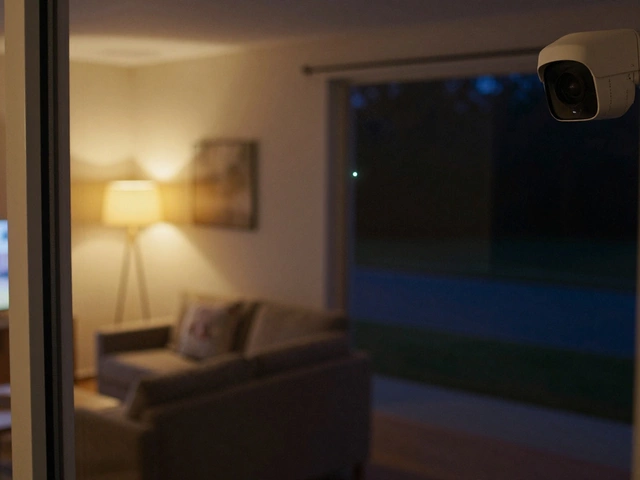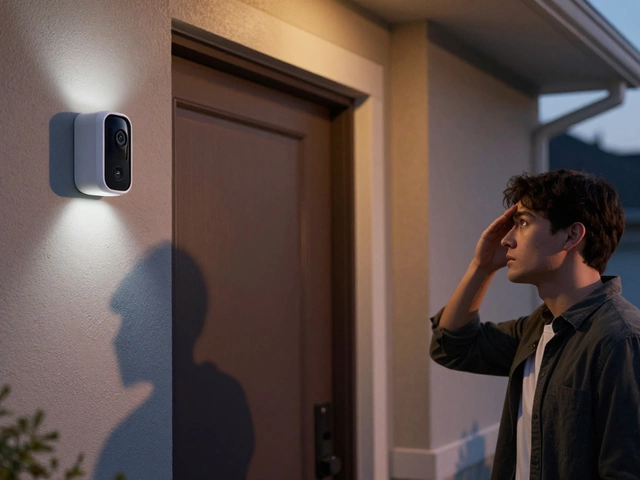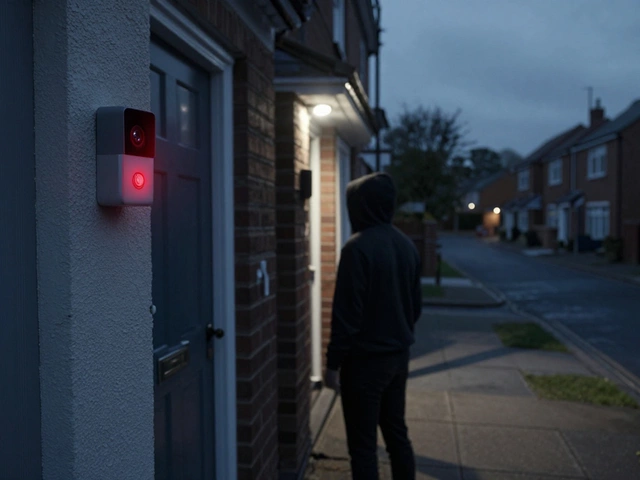If you’ve ever considered installing a wireless alarm at home, you’ve probably seen Vivint pop up more than once during your search. But what’s the deal with the lawsuit everyone’s suddenly talking about? This isn’t just some random court fight—Vivint, one of the biggest security system providers, is facing heat that could shake up how companies sell and support wireless alarms.
Let’s be honest: when you’re choosing who protects your home (and your kids, like Nolan and Avery, if you’ve got them running around), you want to know your money’s going to a company you can trust. A lawsuit like this doesn't just mean legal drama; it can mean real headaches for regular folks who just want to sleep easy at night.
We’ll dig into what got Vivint into trouble, how it affects people using their systems today, and a few smart tips if you’re shopping around for something you can actually count on. Stuff like hidden fees, surprise contracts, and even how these systems actually protect against break-ins should be on your radar. Not every slick-looking alarm system delivers—and as Rex reminds me every time a squirrel sprints past the window, you can never be too careful about security.
- Why Vivint Landed in Court
- What the Lawsuit Accuses Vivint Of
- How It Impacts Customers
- What Homeowners Should Know
- Tips for Choosing Reliable Alarm Systems
Why Vivint Landed in Court
Vivint didn’t just wake up one morning with a lawsuit on its doorstep. It took years of customer complaints, government attention, and headline-making press to get to this point. The core of the lawsuit? The Federal Trade Commission (FTC) and several states accused Vivint of shady sales tactics and outright fraud in the Vivint lawsuit filed in 2021.
According to the FTC’s public filings, Vivint employees were reportedly running credit checks on people without their knowledge to boost sales numbers. Some people said they learned about surprise accounts opened in their name only when their credit scores dipped. Others got stuck with bills for alarm systems they never bought or wanted. The government called it “identity theft, plain and simple.” Popular news sites even picked up individual stories of seniors and busy parents who found themselves with mystery Vivint accounts after dealing with pushy door-to-door reps.
Vivint’s other accusations were just as serious. Complaints included:
- Using fake or borrowed identities to set up new customer accounts and earn more commissions.
- Not canceling contracts when requested, or making it nearly impossible to do so.
- Hitting customers with surprise charges or extending contracts with no warning.
Vivint eventually agreed to a settlement with the FTC, paying $20 million and promising big changes to its sales and account practices. That dollar amount wasn’t just a slap on the wrist—it was one of the biggest for a wireless alarm company. At the time, Vivint was already a well-known name in smart home security, so the lawsuit really grabbed people’s attention. Even now, word of the Vivint lawsuit sends a clear signal: customers want transparency, not trickery, when someone is securing their home.
What the Lawsuit Accuses Vivint Of
The Vivint lawsuit draws attention to several sketchy practices the company allegedly used, especially around their sales pitches and customer accounts. The main complaint: Vivint is accused of tricking people into unwanted contracts and pulling credit checks without clear permission. Pretty shady, right? Homeowners found themselves locked into long, expensive deals or saw hits on their credit scores—sometimes without even realizing they’d agreed to anything.
Here's what the actual lawsuit lays out:
- Running credit checks on folks just for asking about an alarm system (often without clear consent)
- Allegedly having employees forge customer signatures on agreements
- Piling on hidden fees or extra months that weren’t in the original contract pitch
- Making it really hard to cancel or get help, especially if you wanted out of your contract
One of the most talked-about points is the alleged forgery of signatures. As highlighted by the Consumer Financial Protection Bureau, an agency that jumped in on the case,
“Vivint’s sales force tricked unsuspecting people, often older adults, into credit agreements or alarm contracts that some never saw coming.”
Let’s talk numbers, too. According to reports filed in 2023, over 9,000 customers complained about improper credit pulls by Vivint. That’s not a footnote—that’s thousands of people facing surprise dings on their credit for something as innocent as asking about a door sensor or camera. Plus, Vivint settled with the CFPB for $20 million at the end of 2023 over these very complaints, which says a lot about the scale of the problem.
| Allegation | Number of Complaints (2023) |
|---|---|
| Unauthorized credit checks | 9,000+ |
| Contract disputes | 5,500+ |
The Vivint lawsuit has also pointed out that elderly customers were some of the most affected, possibly because they trusted door-to-door reps or didn’t spot small print hidden in pitches.
If you’re scoping out wireless alarms, this case is a wake-up call. Double-check every paper you sign, ask if a credit check will happen, and get all the terms in writing before a single sensor goes up in your living room.

How It Impacts Customers
The first thing people want to know about the Vivint lawsuit is: does this mess with my home security or bank account? Short answer—possibly, yes. If you’ve ever signed up for Vivint’s wireless alarm system, the lawsuit claims some customers got hit with surprise contracts, confusing bills, or their credit messed up without much warning.
Here’s what’s landed the company in hot water: according to allegations from the Federal Trade Commission (FTC), Vivint pushed some reps to fudge credit applications for potential customers who might not qualify. This means folks who thought they were only getting a quote ended up with credit checks or even with accounts they didn’t ask for. That can make buying a car or getting a loan tougher if your credit takes a hit you didn’t see coming.
There’s also noise about billing practices. Some customers complained of being charged even after trying to cancel. A few said they were locked into long contracts they never agreed to, or had a tough time getting equipment removed once they changed their minds. The mess here isn’t just paperwork—it’s real money and credit scores on the line.
| Year | Vivint Complaints Filed (FTC) | Refunds/Reimbursements Paid |
|---|---|---|
| 2021 | 3,400+ | $20M settlement (est.) |
| 2023 | 1,900+ | $5M+ |
For current Vivint users, it’s smart to check your statements and credit reports for weird activity. If you’re locked into a long contract or see surprise payments, write down what you’re seeing and call Vivint directly. The FTC also set up an official refund process for some customers, especially those hit with unauthorized accounts or fees. So, if you’re affected, there may be money back on the table—but you’ll want to keep a close eye on your mail and email for legit updates.
- Check your credit report regularly if you’ve ever given Vivint your Social Security number.
- Keep copies of every bill or sign-up document (screenshots help here).
- If you spot something shady, report it to the FTC or your state’s consumer protection office right away.
Bottom line—nobody wants to end up with a home alarm that’s harder to get rid of than a flu bug from your kid’s daycare. Stay on top of your details and don’t be afraid to speak up if something feels off.
What Homeowners Should Know
So what does this whole Vivint lawsuit mean for you if you already use a wireless alarm system, or you’re thinking about getting one? Let’s clear up what’s going on so you can make smarter choices for your home.
First off, here’s the real scoop: Vivint was accused of using shady sales tactics and not being upfront about contract terms. The FTC hit Vivint with a Vivint lawsuit that led to a settlement for $20 million in 2024. The case documents said some customers didn’t even agree to accounts that were opened in their names, and others reported surprise charges showing up months after they thought everything was paid for. That’s not just awkward—it can actually mess up your credit score.
Here’s a quick breakdown of what went down and what to watch for if you’re a homeowner:
- Long contracts: Vivint’s contracts can be three to five years long. A lot of people didn’t realize this at sign-up, especially if the rep breezed past the fine print.
- Credit checks: Vivint sometimes pulled credit reports without people knowing. This can ding your credit, even if you don’t end up buying anything.
- Billing issues: Complaints included surprise bills, getting charged after cancellation, and even having fake accounts pop up. The FTC says they saw hundreds of reports from every state.
- Consumer rights: Because of this lawsuit, Vivint had to change some policies and pay affected customers. They now have to be up front about terms and can’t trick people into contracts.
Here’s the kind of complaints the FTC got, laid out in a way that’s easy to skim:
| Type of Complaint | Number Reported (2023-2024) |
|---|---|
| Unauthorized Accounts | 800+ |
| Surprise Bills/Cancellation Issues | 1,200+ |
| Credit Report Damage | 600+ |
If you’re shopping for an alarm system or already have one, take these steps:
- Read contracts fully—ask questions if something seems off or if they rush you.
- Check your credit a month after applying for any security service, just to make sure nothing weird pops up.
- If you spot a problem—like extra charges—contact the security company and your bank right away. Document everything.
- Know your right to cancel—companies have to tell you this by law.
The bottom line? The Vivint situation is a reminder to slow down and double-check who you trust to protect your home. If a deal sounds too good or a rep is pushing you to sign fast, it’s worth hitting pause to look closer. It’s your family, your stuff, and your peace of mind on the line.

Tips for Choosing Reliable Alarm Systems
Looking for a solid alarm system? Don’t fall for slick ads or just grab the first shiny panel you see at the hardware store. There’s a lot more to it, and dealing with a lawsuit-happy industry like the wireless alarm world, you really want to be picky.
The biggest thing? Check the reputation of the company before you sign anything. Do a quick search for complaints with the Better Business Bureau or look up news about major legal trouble. If a company’s got a pile of legal complaints, like the Vivint lawsuit that’s been all over the headlines, that’s a red flag you can’t ignore.
Here are some simple, practical steps you should follow before committing to any wireless alarm system:
- Look for transparent contracts: Some companies hide weird fees or lock-in periods in the fine print. Read every page or, if you’re like me, at least skim the main terms—cancellation fees, contract length, and equipment ownership matter more than you think.
- Demand clear pricing: If it’s confusing or seems vague, that’s your sign to ask twice. Make sure you know exactly what you’re paying up front, monthly, and for extra features like smartphone alerts or camera access.
- Read customer reviews: Real people will tell you the truth about how reliable the system actually is, including response times for break-ins, false alarms, or support quality.
- Check for independent certification: Organizations like UL (Underwriters Laboratories) or ETL test home security gear for reliability. If the equipment or monitoring is certified by these groups, you’re looking at a better bet.
- Test the equipment yourself: Make sure it connects smoothly to your Wi-Fi, works during a power outage (look for battery backup), and doesn’t struggle with dead zones in your home. Even pro-installed systems can have hiccups—test those motion sensors by running past them with your dog (Rex loves this part).
If you need some numbers to put things in perspective, check out how consumers actually feel about today’s big alarm players based on a 2024 industry survey:
| Provider | Customer Satisfaction Score (out of 10) | Average Response Time (seconds) | Legal Complaints Filed (past 3 years) |
|---|---|---|---|
| Vivint | 5.8 | 28 | 2,020 |
| ADT | 7.1 | 35 | 1,180 |
| SimpliSafe | 8.4 | 25 | 470 |
| Ring | 7.9 | 32 | 850 |
That chart shows Vivint’s customer satisfaction and complaint numbers don’t look as good as others. Pay attention to both the numbers and what reviewers are actually saying. Keep a sharp eye out for any service that gets a lot of heat for aggressive sales tactics or contract surprises.
Last tip? Ask your neighbors or friends what they use, especially if they’ve had to deal with the company’s customer support during an emergency. Real feedback—straight from the people who trust these systems to protect their families every day—is worth more than even the fanciest commercial or web demo.





